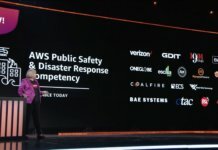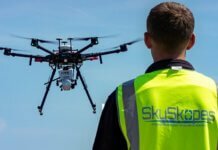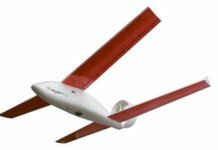Shortly after the Federal Aviation Administration (FAA) released its anticipated rules regarding small unmanned aircraft systems (UAS) registration, U.S. Sen. Richard Blumenthal, D-Conn., spoke out about the need for better enforcement against flying violations – a topic widely addressed for some time now.
Blumenthal, who is also a member of the U.S. Senate Commerce Subcommittee on Aviation Operations, Safety and Security, wrote a letter to FAA Administrator Michael Huerta earlier this summer – before the registration initiative was first announced – where he urged the agency “to take strong and swift enforcement steps immediately against anyone endangering the skies.”
“The FAA has authority to pursue civil and criminal penalties against those who endanger the safety of the national airspace, and it is clear that a growing number of dangerous drone operators fail to operate their devices with the necessary due care or knowledge of safe flying practices we must demand,” he wrote.
The senator is now echoing those same thoughts by acknowledging that registration is “a positive step for accountability and oversight” but that the agency must now combine registration with “effective enforcement – holding anyone accountable who threatens air safety.”
With mandatory drone registration, the FAA and U.S. Department of Transportation (DOT) want to not only help identify operators of misused UAS, but also mitigate the misuse of UAS by educating these operators on safety rules during the pre-flight registration process.
At the October FAA/DOT press conference that first revealed the registration plan, an attendee asked – albeit a little sarcastically – in regards to enforcement against operators who don’t comply with registration, “Are you going to send the drone police after people?”
DOT Secretary Anthony Foxx responded that there will, indeed, be penalties for these operators, and Huerta emphasized throughout the conference that this would be a joint effort with law enforcement officials. (And the punishments are stiff for not registering: “The FAA may assess civil penalties up to $27,500. Criminal penalties include fines of up to $250,000 and/or imprisonment for up to three years,” the agency says in its FAQs for registration.)
At last month’s “Town Hall Meeting” at the Drone World Expo in San Jose, Calif., an attendee asked the panel of industry experts how exactly reckless drone operators should be dealt with.
Panelist Gretchen West, who has served in the unmanned systems industry for over a decade and is currently senior advisor for innovation and technology at law firm Hogan Lovells, admitted that she is not sure what the right answer is for the most effective enforcement method – but it should not rest only in the hands of the FAA, she said.
“The FAA is not in the enforcement business,” West explained, adding that the agency simply does not have the resources to handle enforcement on the level that is required for this job.
Blumenthal also notes that Congress needs to “act swiftly” to bring the FAA “more authority, tools and resources to safeguard our skies from increasing dangers of these new devices.”
To give a picture of how much enforcement is needed in regards to rogue drones, in an August release, the FAA cited over 650 reports – just in 2015 – from manned aircraft pilots who had spotted UAS while they were flying.
However, the Academy of Model Aeronautics, who conducted an analysis of these reports and found that many of these sightings were not legitimate concerns (e.g., the UAS may have actually been a bird), also noted that in 142 of these cases, local law enforcement officials were not even notified, or it was not stated in the report that they were notified – “despite the FAA’s stated desire to find and punish rogue operators,” AMA said.
AMA concluded that there clearly needs to be “greater communication and coordination between the FAA and local law enforcement” in order to “identify and hold accountable operators who pose a danger to the national airspace system.”
At the start of 2015, the FAA made it clear it does, indeed, want help from the police.
“State and local police are often in the best position to immediately investigate unauthorized UAS operations and, as appropriate, to stop them,” the agency said in a January release that outlined “the law enforcement community’s vital role in deterring, detecting and investigating unsafe operations.”
Now, Huerta explained at the October press conference, mandatory drone registration, which is intended to trace a rogue drone back to its operator, will provide “a basis to go after you.” Under the new rules, UAS operators will be required, upon request of a “government, state or local law enforcement officer,” to present their registration certificate.
As demonstrated just last month, 57-year-old Martin Sheldon was convicted for flying a UAS too close to a Los Angeles Police Department helicopter in August. Cops were able to track him down, and among other penalties, he had to give up his drone and is forbidden from flying any type of unmanned aircraft during his three-year probation period. Also last month, a UAS crashed into the 175-foot-high Great Wheel in Seattle, after which the PD recovered the fallen drone but could not identify the operator.
Christmas is next week; drone registration starts in four days. How many more Martin Sheldons or Great Wheel enthusiasts will open brand-new drones to fly in national airspace is to be determined. Whether they are also caught, publicly identified and punished – as a direct result of the new registration requirement – is also to be determined.








